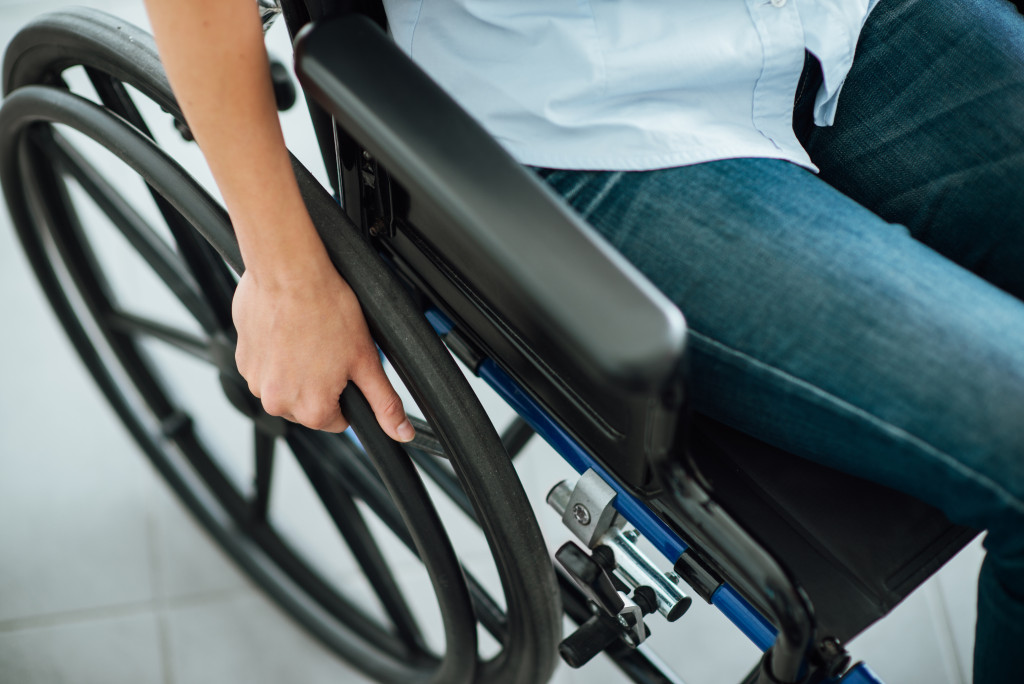Developing a disability later in life is a different experience from being born differently able. It may take you time to come to terms with it, and you may be at a loss at how to absorb this news. Your first instinct may be to feel devastation and fear. But this is reactionary. You need to focus on the practical aspects first and stave off the fear to ensure that you’re being taken care of the best way possible.
Seek a second opinion at a different hospital, research the diagnosis yourself, and consult a lawyer about Social Security Disability benefits. While your disability may not be reversible, you can find medications and physical therapy to ease your discomfort and improve your quality of life. The lawyer will ensure that you can take the time to focus on your well-being and not have to worry about your basic needs as you adjust to your new way of living.
At this time, you may be struggling with your self-esteem and your self-perception. You may be plagued with questions about whether you are still the person you have always been. The short answer is that you are still you, but with new challenges. Your goal needs to be to find a way to regain your confidence so that you can regain your positive self-image and allow yourself to find the happiness that exists out there for you.
Support Groups
There is someone who has been where you are now. They want to help you, and they will take the time to help you navigate your new reality. You must take the first step and shore up your courage to reach out. Join a support group and be open about your struggles. These are the people who can help you to understand your new needs and impulses the best. Trust your intuition and trust their good intentions. This will be the first step on your journey to trusting yourself fully once again.
True Capability
Your capability has not changed due to your disability. You are still the same person with the same goals, and the only thing that has changed is how you will achieve your goals.
Even if your old goals feel like they are no longer of interest to you, you can have new dreams. Think of every para-lympian who has participated in the Olympics. They could have allowed doubt and naysayers to hold them back. Why should you allow doubt to hold you back? Focus on what you can do because if your mindset is to remain capable and strive for success, you will see that even what looks like a small win to someone else is a big win for you.
Find Your Limits

Once you have healed, it is time to find out your new limits and manage them. Many prosthetic limbs are available, and many can be customized to suit your needs.
Prosthetic limbs are expensive, and you may even have to travel to another country to get them. Perhaps this is your only limit. Finding a way to make and raise the money you need to afford the prosthetic limbs you want to be active. Perhaps your limits are that you need to learn Braille or find a hobby you can do while stationary. Seek help and take heart because you have people who can help you find your limits and overcome them.
Be Prepared
If your disability is visible enough, you need to mentally prepare yourself for how other people treat you. You can no longer be another face in the crowd. People will treat you as a fragile creature in need of care or an inspirational being to uplift others with your indomitable spirit. Both expectations will be difficult to bear and can be unavoidable at times.
You are under no obligation to educate the people around you. They are not owed your story or your status to make them feel better. But you do need to develop armor against these situations. Some people take offense when others do not behave the way they expect. So you must be prepared to express yourself clearly and walk away from a situation where someone is trying to make you something you’re not. It is not fair, but no challenges are fair. Your new challenges come with a new set of unfair expectations.
Remember not to be hard on yourself. Certain people experience what you deal with. The strength and fortitude it takes to live life with a disability are within you. It is the same strength you used to keep going on hard days. Fortitude is what helps you complete tasks when all you want to do is cry or rest.
Now, you have to remember your strength and use it as a tool. You have to define and name the mettle that made you want to find a way to be more than just your disability. The act of seeking information about it, trying to understand your new challenges, and wanting to make an effort shows that you have what it takes to be your own best advocate.

